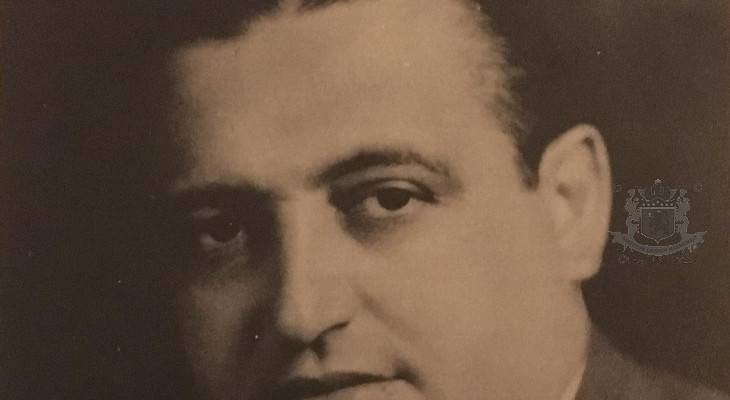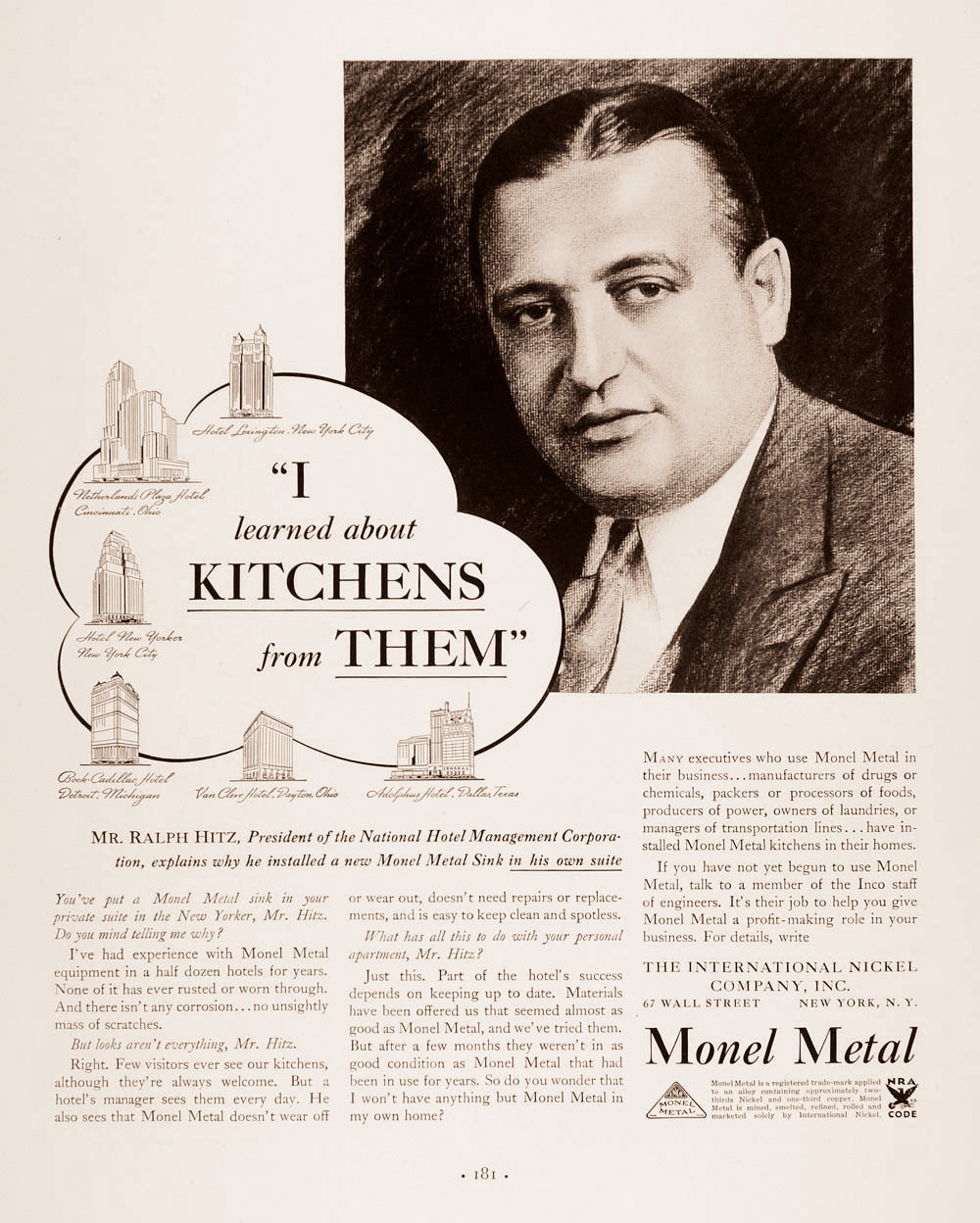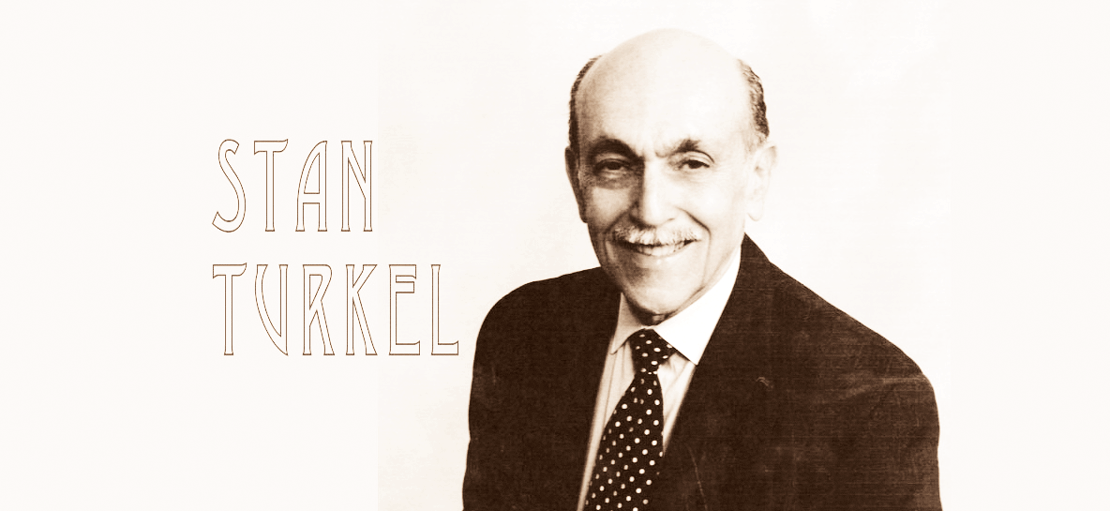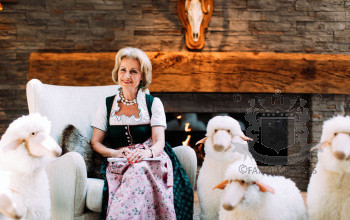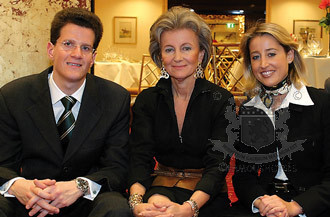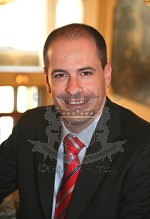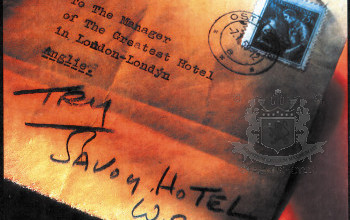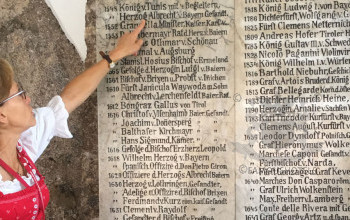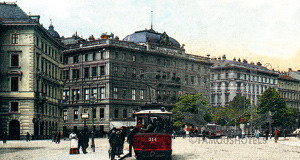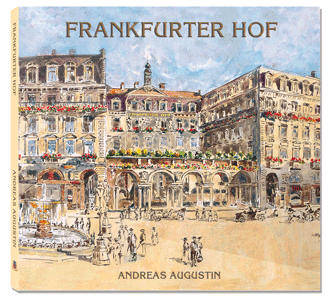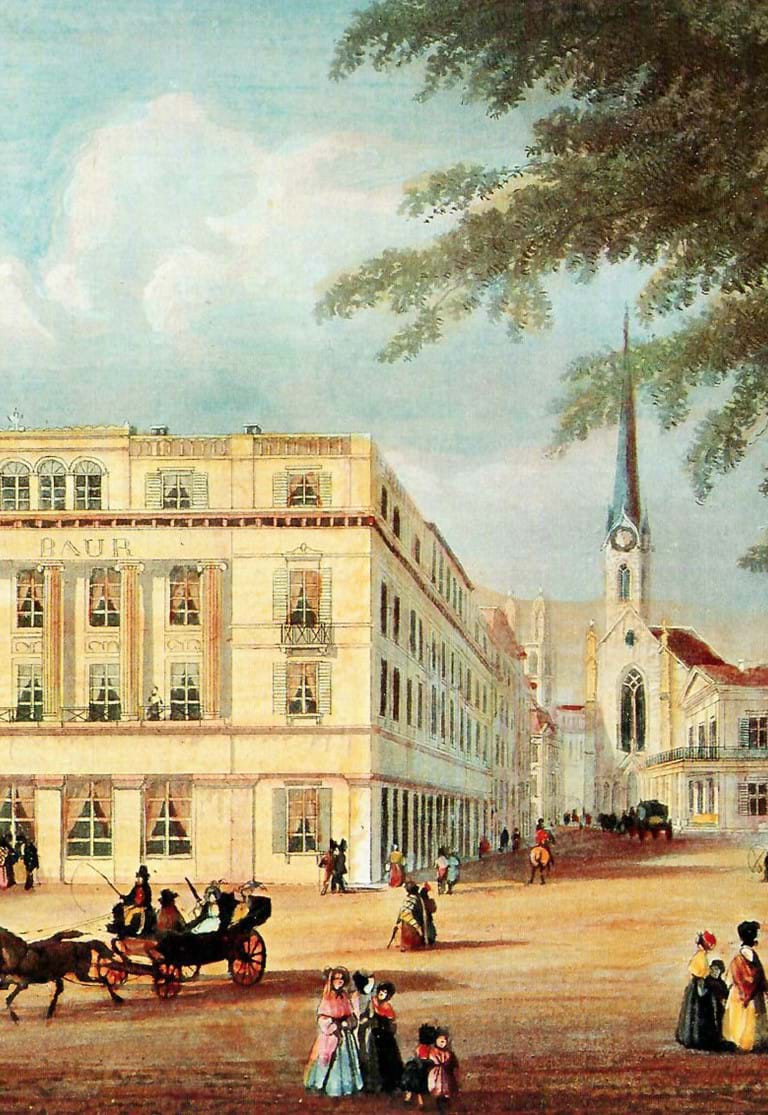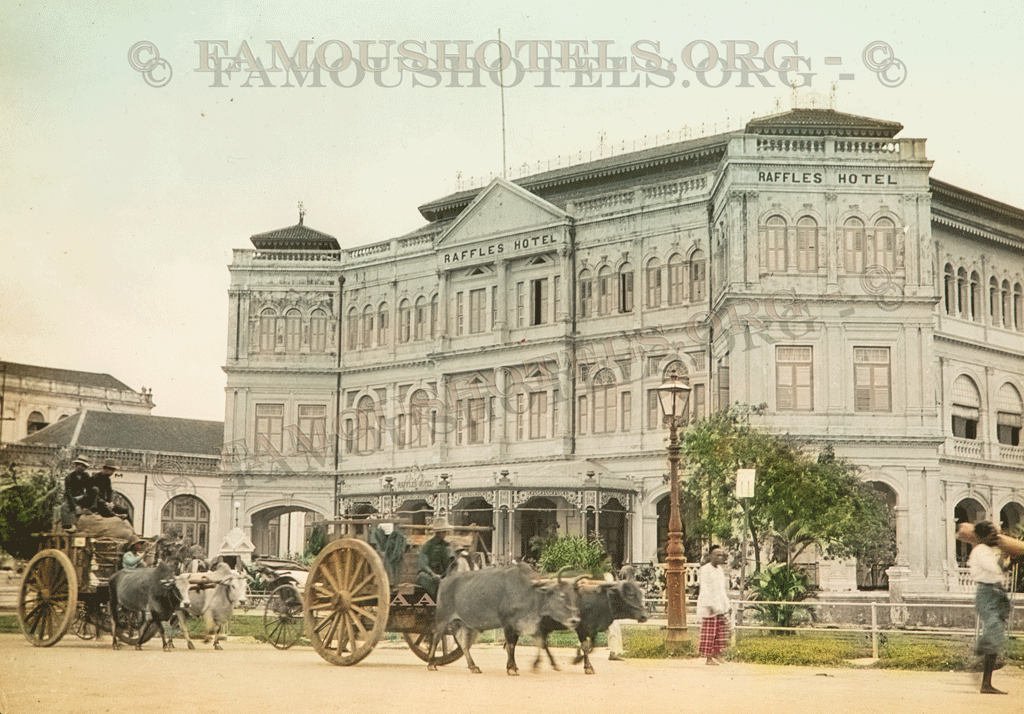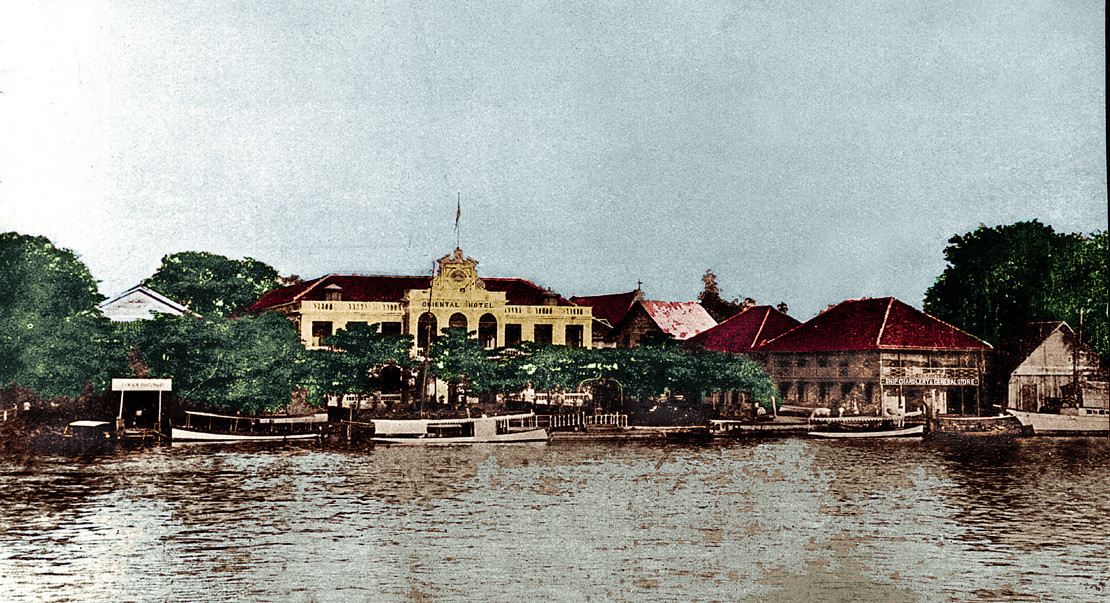Ralph Hitz, the Austrian who changed American Hospitality
( words)
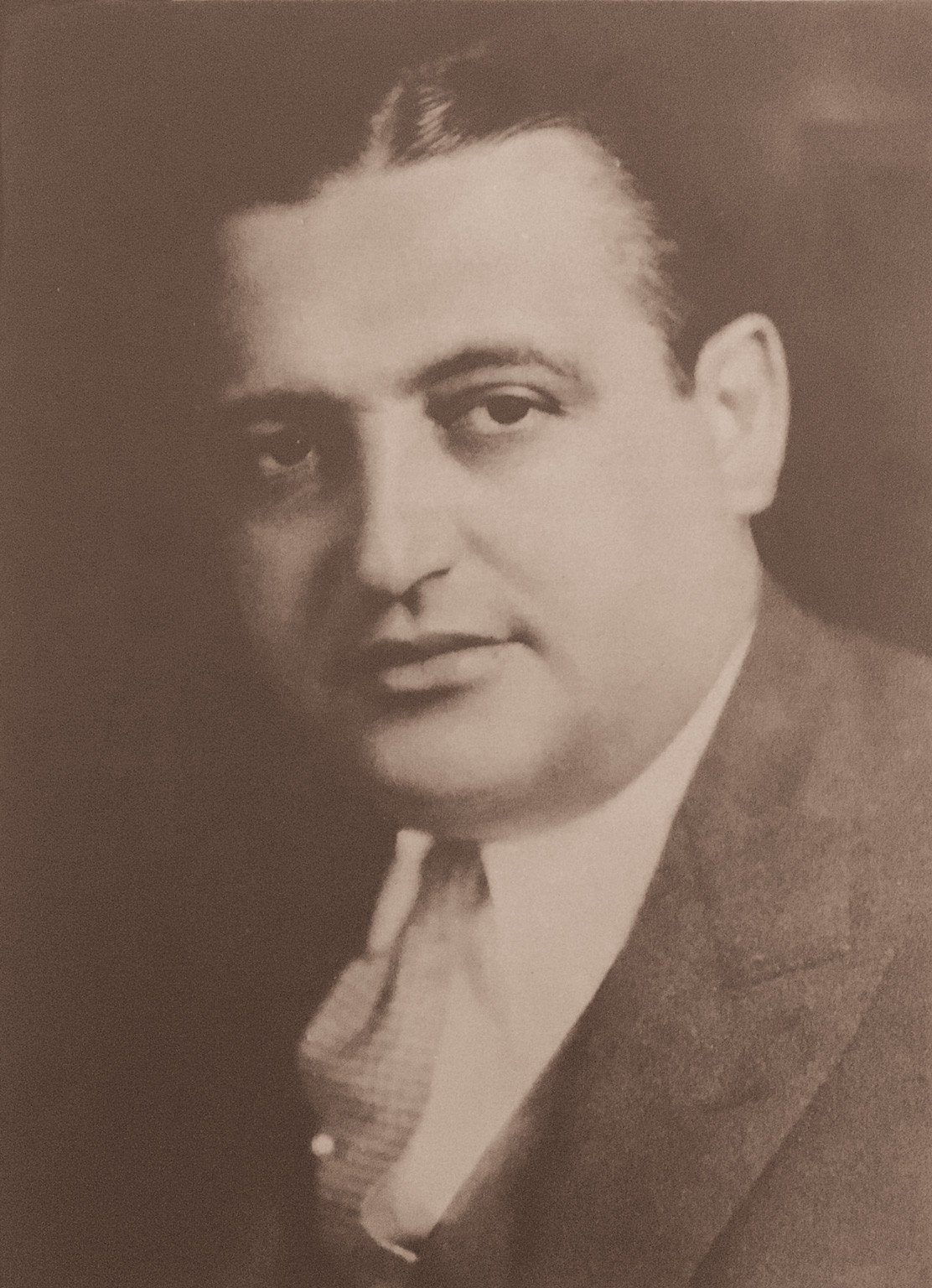
By Stanley Turkel, CMHS / edited by Andreas Augustin
Ralph Hitz (1891- 1940)
The hotel business has seen many fine promoters and salesmen but perhaps none as creative as Ralph Hitz. His two favorite expressions “Contact the hell out of ‘em” and “Give ‘em walue and you get wolume”, spoken in his thick Viennese accent, were a key to his philosophy of business. And it worked.
Hitz does not rank with the other great hotelmen in the sense that he built an empire or left an estate. He did neither. His period in the limelight lasted only 10 years, a period when the hotel business was at its low ebb in American history. Hitz was a sales and promotion phenomenon, who was able to take ailing hotels and forecast within a few dollars what their sales and profits would be and then produce the sales he had forecast.
Born in Vienna, Austria, on March 1, 1891, Hitz started his career as an elevator boy at the Hotel Sacher in Vienna when he was fourteen after he'd ran away from school. His family eventually returned him to school as his father wanted him to be an architect. However, on a family trip to the United States he ran away from home three days after his family arrived in New York in 1906. He made his way to New Mexico and started as a busboy at a small hotel in Lumberton. He spent the next nine years working in restaurants and hotels around the nation, then got into hotel management. In 1927, Hitz was made the manager of the Hotel Gilson in Cincinnati where he tripled the hotel’s net income.
Hitz was hired to manage the 2,500 room New Yorker Hotel, which opened on January 2, 1930, weeks after the stock market crash. Hitz's ability to turn a profit during the depression led the hotel's mortgage holder, Manufacturers Trust Company, to hiring him to control all of its hotels. During the 1930s, his National Hotel Management Company was the largest chain of hotels. In New York, it included The New Yorker, The Lexington and The Belmont Plaza. In addition, he operated The Adolphus in Dallas, The Netherland Plaza in Cincinnati, The Nicollet in Minneapolis; The Van Cleve in Dayton and one in Chicago.
In 1936 Hitz published The Standard Practice Manuals for Hotel Operation, which covered every aspect of what he believed needed to be done in order to operate a hotel successfully.
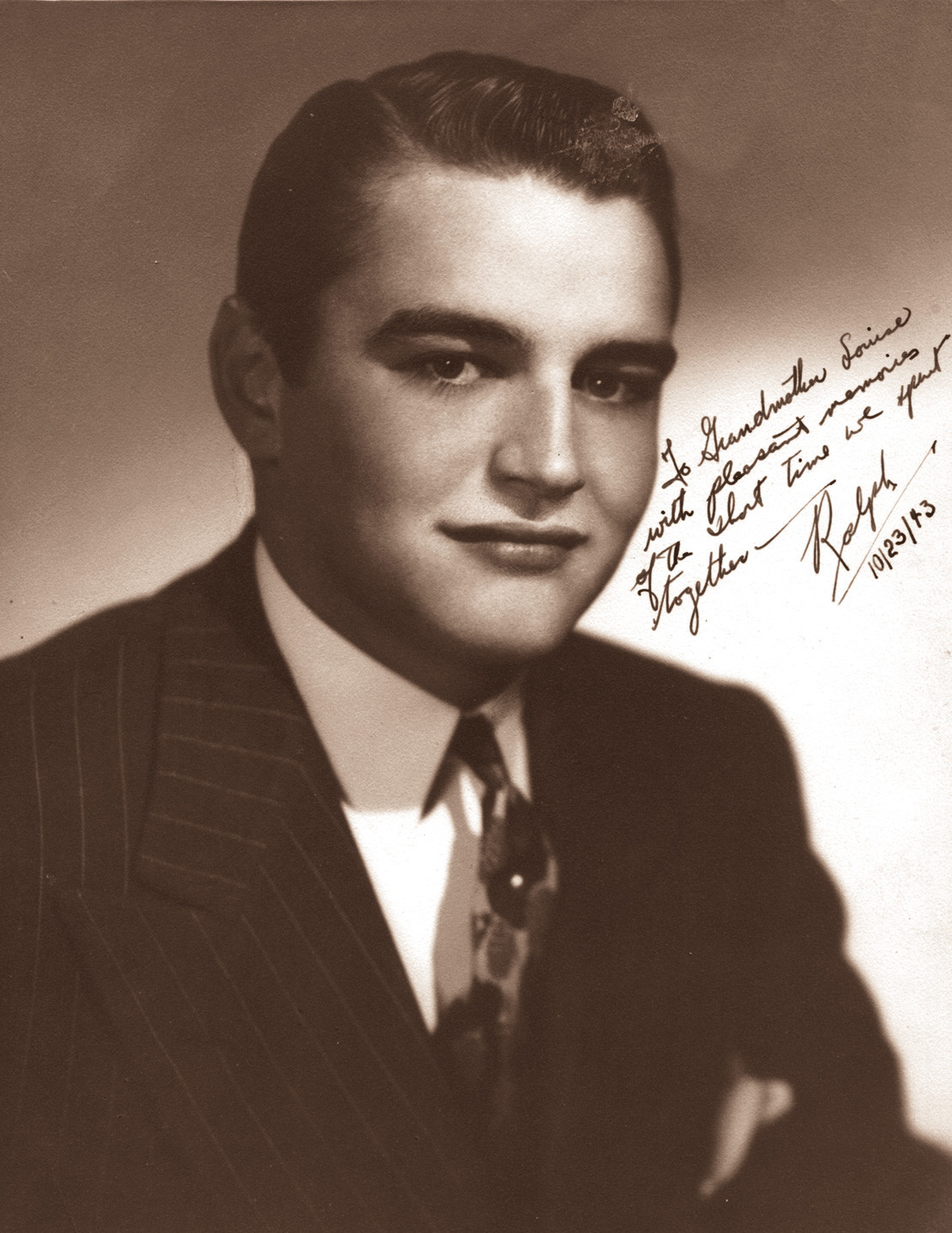 He spent $20,000 (a large sum in the depression year of 1930) in changing a delicatessen into a coffee shop. The coffee shop was in instant success. Against the Name bands and ice shows were also a favorite with Hitz. He saw to it that his shows and performances were well attended even if 30% to 40% of the guests at first night performances were “dead heads”, non-paying guests. His explanation: “Business brings business”. He was the first, according to his son, Ralph Hitz, Jr (pictured with his autograph; 1925-1998), to air condition a hotel dining room. Again a simple explanation: “People eat more when they are cool”.
He spent $20,000 (a large sum in the depression year of 1930) in changing a delicatessen into a coffee shop. The coffee shop was in instant success. Against the Name bands and ice shows were also a favorite with Hitz. He saw to it that his shows and performances were well attended even if 30% to 40% of the guests at first night performances were “dead heads”, non-paying guests. His explanation: “Business brings business”. He was the first, according to his son, Ralph Hitz, Jr (pictured with his autograph; 1925-1998), to air condition a hotel dining room. Again a simple explanation: “People eat more when they are cool”.
When the 2,500 room New Yorker Hotel prepared to open, Hitz was hired to manage the new venture, which opened on January 2, 1930, weeks after the stock market crash. Hitz’s ability to turn a profit during the Depression led the hotel’s mortgage holder, Manufacturers Trust, to hiring him to operate all of its hotels. In 1932, the National Hotel Management Company was created with Hitz as the president.
Guests checking into a Hitz-managed hotel were showered with attention. As a guest registered he was asked, “Is this your first visit?” If the reply was “Yes,” a floor manager was called and informed. “It is Mr. Jones’ first stay,” whereupon the floor manager extended a warm welcome. The room clerk then called a bellman and, being careful to use the guest’s name, announced “Show Mr. Jones to room 1012.” Then the inevitable, “Thank you, Mr. Jones”.
During the registration procedure the word loved most by the guest, his name, was used at least three times. The bellman was trained to say, “Are you expecting mail or telegrams, Mr. Jones?” Later, the bellman passed the good news on to the elevator operator that Mr. Jones was stopping at the hotel. “Tenth floor, for Mr. Jones.” This “strange music” of one’s name did not stop until the guest was cozily settled in his room. On the way to the room, the floor clerk was also let in on the fact that Mr. Jones had arrived. The bellman picked up the key with “Number 1012 for Mr. Jones”. Once in the room the bellman hurried about putting away the guest’s coat and hat, unpacking his luggage if he so desired, explaining the Servidor, the laundry and valet facilities. Finally: “Mr. Jones, may I be of further service?” By this time, Mr. Jones was feeling quite friendly toward Mr. Hitz and the hotel. A first-stay guest could expect even more of the red-carpet treatment: a few moments after having settled down in his room, he was called by the Hospitality Desk and solicitous inquiry made to see if “Anything further can be done to make your stay comfortable, ... Mr Jones?”
A guest who stopped at a Hitz hotel 100 times became a member of the Century Club, his name engraved in gold on a gift notebook. E.M. Statler started the idea of slipping the daily newspaper under the guest room door. “Compliments of the management”. Hitz went a step further and provided a hometown newspaper for the guest (provided he came from one of the cities from which most of the hotel’s business was derived).
Hitz tracked information about annual conventions for 3,000 organizations, sent weekly bulletins to each of his hotels, and lobbied to have conventions booked in the seven cities where the NHM hotels were located. Hitz recognized the importance of keeping his employees happy, paid competitive wages, sent gifts on special occasions, and protected the jobs of any employee with at least five years of service. Hitz was the first manager to create a customer database. In the days before computers, Hitz maintained file cabinets with information on the preferences of thousands of guests. Among the uses of the data were to order the newspapers from a guest’s hometown, to be delivered to their rooms.
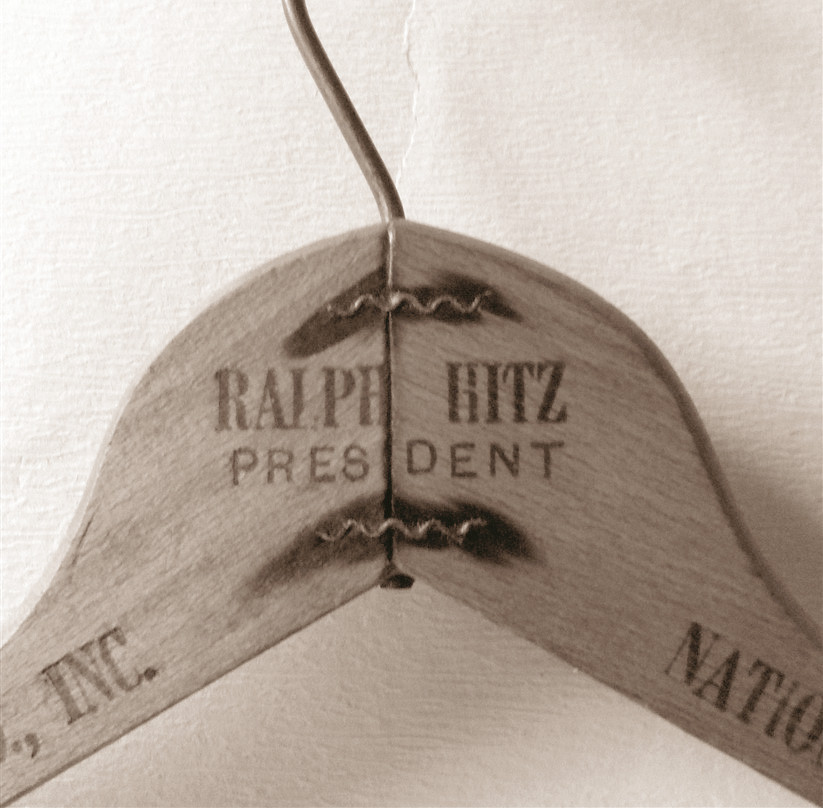
Another Hitz idea was a closed circuit radio system, similar to the in-house television channels in modern hotels, to advertise services in each of his hotels. A guest would need only to switch on the radio to learn about the evening’s scheduled entertainment and the day’s menus. In the hotel dining rooms, Hitz hired a special chef (called a “Tony”) to make café Diablo and Crêpes Suzette, and to sell the treat for an affordable 50 cents.
Tall people were given room with seven-foot beds. Parents with children were sent a special children’s letter soon after registering.
Sick patrons were personally visited by the floor managers. Guests leaving on an ocean trip were sent bon-voyage messages. While most hotels were requiring guests without luggage to pay in advance, a no-luggage guest at a Hitz hotel was provided with an overnight kit containing pajamas, toothbrush, toothpaste and shaving gear.
Everyone in the Hitz hotels was trained and expected to be a supersalesman. Room clerks were sent out over the country for one or more months each year to pick up business and get acquainted with their customers first-hand. A Hitz man was supposed to give his all for the hotel, and room clerks were expected to make calls within their own city during their off-hours. To insure compliance, each salesman kept a file card on each prospect and noted the time of the contract. Hitz hired a 7-passenger plane to sales-blitz all cities of 100,000 and more in population.
Selling went on all the time the guest was in the hotel. If he opened a closet door, there staring him in the face was a placard advertising one of the hotel services or a dining room. Even the mirrors in the bathroom medicine cabinets held advertisements. Should the guest settle down on the bed to listen to the radio he was still within the master-seller’s voice range. The radio was interrupted at set intervals so that the hotel services might be extolled and called to the guest’s attention.
At 8:00 AM, the radio system started with a breakfast announcement; at 12 o’clock noon the day’s luncheon with prices were quoted; at 6:00 PM, the guest learned about the wonderful dance band currently playing in the dining room; at 7:00 PM, three-minutes were given over to a little talk made by the publicity manager who told about the interesting guests and events of the day. Finally, at midnight the valet service, laundry or some other hotel service was featured and the guest could drift off to sleep assured by the words, “Goodnight on the behalf of the management and the entire staff.”
Cesar Ritz, before the turn of the century, had sent private letters to his hotels describing the idiosyncracies, and special likes and dislikes of his guests. Hitz systematically collected the information he wanted on each guest and set up a guest history department. This department, manned by a separate staff, kept guest records and followed the Hitz system of bringing the guest back to the hotel.
The system made routine the collecting of each guest’s birthday and wedding anniversary date, his credit standing and other information of value to the hotel. Routine also was the sending of a letter to all first-time guests, to each guest who had stopped with the hotel twenty-five times, fifty times and one-hundred times.
On the fiftieth visit the guest received a complimentary suite. With the hundredth visit an appropriate gift with a letter was sent. Birthday greetings and wedding anniversary felicitations went to all regular guests. Color signals on the record cards showed if there was to be no publicity, if the person was undesirable and not to be welcomed or if the address given was questionable.
Special credit cards for people important to the hotel were developed by Hitz management. Statler had given gold fringed cards to his friends which entitled them to the ultimate in service and accommodations. Hitz also gave a Gold Credit Card to persons who might influence convention or other group business.
Anytime a Gold Card holder checked into the hotel he was extended special courtesies, and was at liberty to bedazzle wife and clients with a virtually unlimited credit. So too were “Star” reservations, people who for any reason the management thought important.
Hitz had a system for nearly everything. Like his former employer, the Hotel Sacher in Vienna, he offered active help to his staff. If one of his employees had a baby, he got a bank deposit book with a $5.00 deposit in it. For twins, the employees received $25.00, and just in case there were triplets, $100.00.
Waiters were instructed never to ask guests “Do you wish more butter?” but always, “Do you wish butter?” Beer was served at 45°F in winter, 42°F in the summer. Should an undesirable person attempt to register at a Hitz hotel, this little contingency was handled with adroitness and business acumen: they were offered only the highest-priced rooms.
To insure that guest rooms were really clean and in immaculate order, a full-time room inspector went from room to room checking on everything in the room. His inspection was in addition to the O.K. placed on the room by the regular inspectors.
Hitz preached guest service which was implemented by a carefully devised system. From his days as a bus boy and waiter, every system was a “setup”. He had a setup for each hotel practice. A Hitz hotel was operated by the numbers. Bellmen were uniformed and drilled by a former trainer of Roxy Theatre ushers. Hitz demanded much from his employees and because it was a time of economic depression, he got superior performance. He also paid higher wages. The prevailing wage was $85 a month for a room clerk; Hitz paid $135. His department heads were the highest paid in the business because he knew it was through them that his systems would be implemented.
Promotion was a part of the Hitz personality and he used it to promote himself as well as his hotels. In 1927, he was offered the management of the Cincinnati Gibson Hotel which was having financial difficulties. No one was more surprised than the board of directors when Hitz promised to earn $150,000 in profit during his first year of operation. The directors were more astounded than surprised when his first year’s profits were $158,389.17.
Supersalesman Hitz as testimonial for Monel Metal kitchens
Because he gave guests who paid regular rates the same superior service that was associated with deluxe rates, his hotels ran high occupancies. During the Depression, when hotel occupancies over the nation were at 50% and lower, such an operator was in great demand. Bankers and insurance company officials who reluctantly got into the hotel business via foreclosed mortgages were eager for his services.
Hitz did more than promote, he introduced all-out standardization to hotelkeeping. His kitchens were fine examples of efficiency and uniformity. Controls of all kinds were installed and thorough-going accounting practices followed. The income from his restaurants, and such services as valet and guest laundry, were so high as to confound his contemporaries. What others had done, he could do better.
A hard-driving man, he was also known for quick thinking and a well-developed sense of humor. To get a true picture of him, one had to see him making daily tours of his house, busily taking copious notes, and later, during the check-in hours, to see him in the lobby, a short, ebullient man personally greeting new arrivals in his almost incomprehensible Viennese accent.
Hitz became ill towards the end of 1939 and died of a heart attack at the Post Graduate Hospital in New York City on January 12, 1940 at the age of 48. His funeral was held at the University Chapel before a gathering of hundreds of mourners. He was cremated and interned at Fresh Pond Crematory on Long Island New York.
The Ralph Hitz Memorial Scholarship, to support undergraduate students studying Hotel administration, was established in April 1941 by the Hotel Ezra Cornell at the Cornell University School of Hotel Administration. It is maintained to this day.

